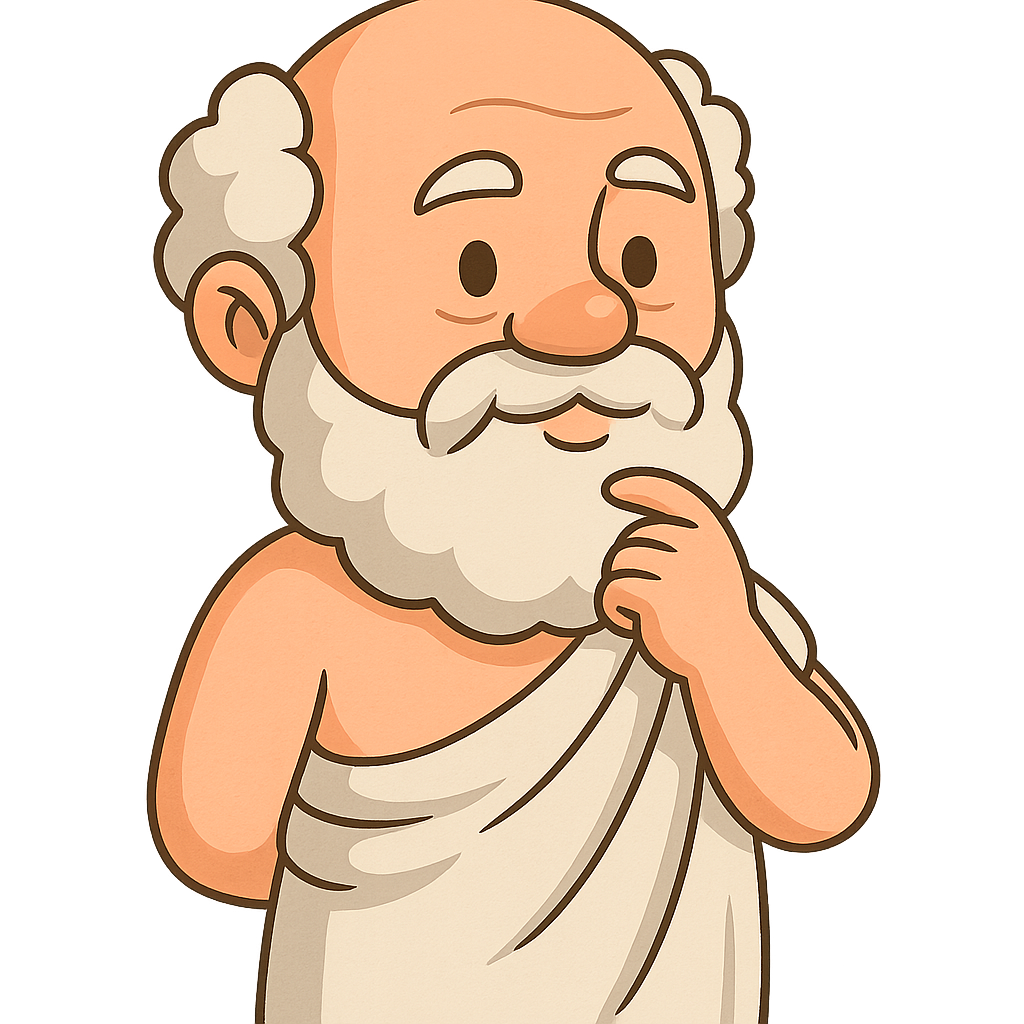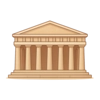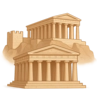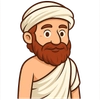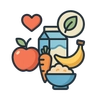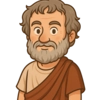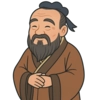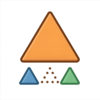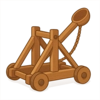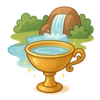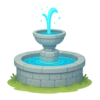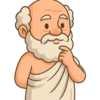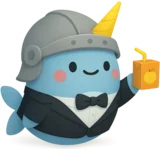Socrates: The Gadfly of Athens
Hello. My name is Socrates. I was born in the magnificent city of Athens around the year 470 BCE. In my time, Athens was the heart of the world, a place buzzing with art, ideas, and democracy. When I was a boy, I would look up at the Acropolis, the great flat-topped rock in the center of the city, and see the Parthenon being built, its marble columns rising toward the sky. It was a time of great energy and possibility. My father, Sophroniscus, was a stonemason, and I learned his trade, how to carve and shape stone. My mother, Phaenarete, was a midwife, a woman who helped mothers bring new babies into the world. Their work deeply inspired me. I watched my father chip away at a block of marble to reveal a beautiful statue hidden within, and I wondered if I could do the same thing with people's thoughts. I saw my mother help with the birth of a child, and I dreamed of helping people give birth to their own understanding.
While I was trained as a stonemason, my true passion was not in the workshop but in the agora, the crowded marketplace of Athens. I wasn’t there to buy pottery or olives; I was there to talk. I would spend my days engaging my fellow Athenians in conversation, asking them questions about the things that mattered most: What is justice? What is courage? What does it mean to live a good life? I found that most people had very strong opinions, but when I questioned them, their ideas often crumbled like dry clay. This curiosity became my life's purpose, a mission to seek truth not by giving answers, but by asking questions.
My life's mission truly began after my friend Chaerephon visited the famous Oracle at Delphi. This was a sacred place where people believed they could receive wisdom from the gods. Chaerephon asked the Oracle if anyone in Athens was wiser than me, and the answer came back: 'No one is wiser than Socrates.' When I heard this, I was completely baffled. I was certain that I knew nothing. So, I set out on a quest to prove the Oracle wrong. I decided I would find someone wiser than myself. I went to the most respected people in Athens—the politicians who governed our city, the poets who wrote our great plays, and the craftsmen whose skills were admired by all. I would ask each of them a simple question related to their expertise. A general might be asked, 'What is courage?' A politician might be asked, 'What is justice?'.
At first, they would give me a confident answer. But as I continued to ask them more questions, digging deeper into their beliefs, I found that their certainty would fade. They couldn't truly define the concepts they claimed to be experts on. Through this process, I realized what the Oracle meant. My wisdom was not in knowing all the answers, but in understanding that I did not know. This method of questioning, of peeling back the layers of a belief to get closer to the truth, became my life's work. I never wrote any of my teachings down. All that we know of my ideas comes from the writings of my students, especially a brilliant young man named Plato. I saw myself as a 'gadfly,' a pesky insect sent by the gods to sting the great, lazy horse of Athens to keep it awake and thinking. It was my job to stir my fellow citizens from their comfortable beliefs and challenge them to think more deeply.
As you can imagine, not everyone enjoys being reminded of what they do not know. While many young people were fascinated by my questions and followed me around the agora, many of Athens' most powerful men grew angry. My questioning made them look foolish in front of others, and they began to see me as a dangerous troublemaker. Their resentment built over the years, and finally, in 399 BCE, when I was seventy years old, they brought me to trial. The official charges were that I was disrespecting the city's gods and corrupting the youth of Athens. They claimed I was teaching young people to disrespect their elders and the laws of our city.
I stood before a jury of 501 of my fellow citizens and gave my defense. I told them I was not a criminal but a public servant. I argued that my questioning was a service to Athens, helping people to become more virtuous by examining their own values. Far from corrupting them, I was helping them to improve their souls. It was during this trial that I spoke the words for which I am most remembered: 'The unexamined life is not worth living.' I explained that to simply eat, sleep, and work without ever stopping to think about your purpose, your beliefs, and your actions is to live the life of an animal, not a human. It is the act of thinking, of questioning, and of seeking wisdom that gives our lives meaning. I urged them to care more for the goodness of their souls than for money or fame.
Despite my words, the jury found me guilty. The sentence was death. I was to drink a cup of poison made from a plant called hemlock. While I waited in prison, my wealthy friends made a plan for my escape. They begged me to flee Athens and live in exile, but I refused. I explained to them that I had lived my entire life under the protection of Athenian laws. To run away now would be to break my agreement with the city and betray the very principles of justice I had spent my life discussing. I believed it was more important to obey the law, even when a verdict was unjust, than to save my own life through dishonorable means.
My final hours were spent not in fear, but in the way I had lived my life: in conversation with my friends. We talked about philosophy and the nature of the soul. When the time came, I drank the hemlock calmly and without protest. My life came to an end in 399 BCE, but my story did not. My students, especially Plato and Xenophon, carried my ideas forward by writing down the conversations we had. Through their work, my questions continued to echo through the centuries. My legacy is not a statue carved from stone, but the enduring spirit of curiosity. It is the voice that encourages people everywhere to challenge their own assumptions, to seek the truth, and to never, ever stop asking 'Why?'. That is the greatest gift I could leave the world: the courage to think for yourself.
Activities
Take a Quiz
Test what you learned with a fun quiz!
Get creative with colors!
Print a coloring book page of this topic.

